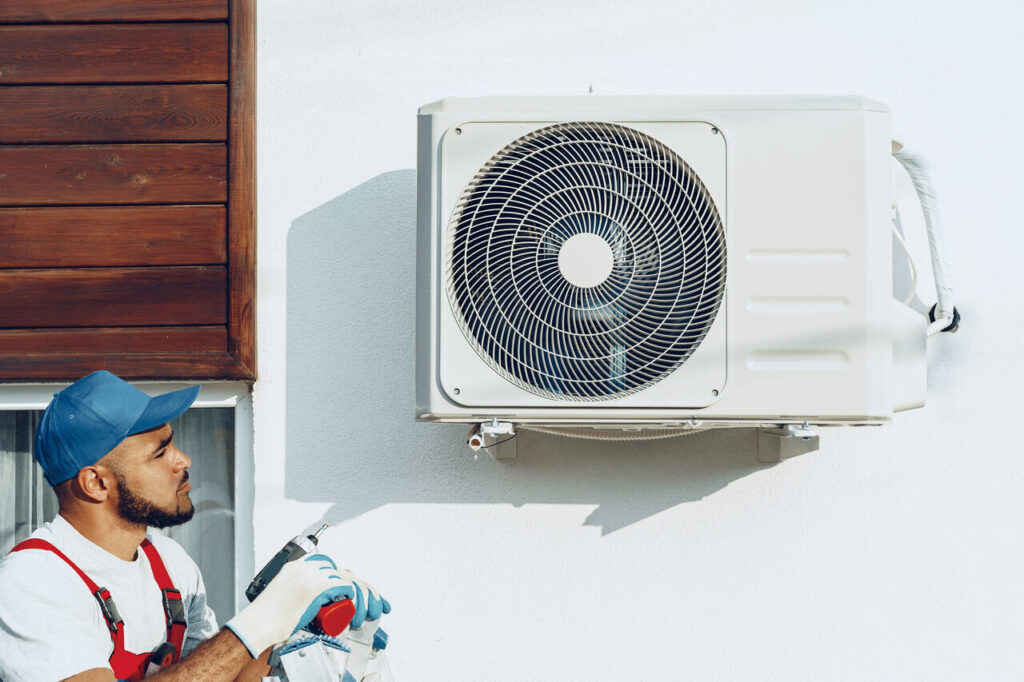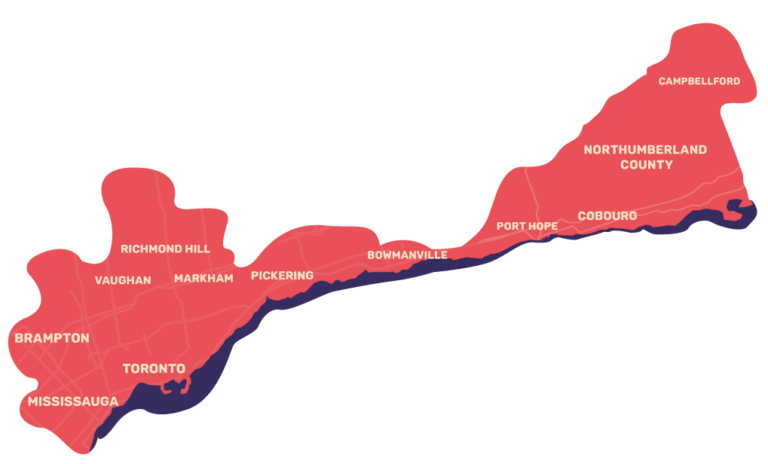Choosing the best HVAC system for your home can seem like a big task, but it’s vital for your comfort and energy bills. A good HVAC system keeps you warm in the winter and cool in the summer. Plus, it can save you money in the long run if you choose the right one.
Before picking an HVAC system, you need to think about what your home needs. Every home is different, and things like size, insulation, and local climate matter a lot. Figuring out your specific needs will help you find an HVAC system that works best for you.
There are many types of HVAC systems to compare. From traditional air conditioners to modern heat pumps, each has its pros and cons. Understanding these options can help you make an informed choice. Plus, there are rebates available for heat pumps that can save you even more money. Knowing how to spot and avoid HVAC scams is crucial. No one wants to spend money on unnecessary repairs or replacements.
Taking the time to choose the right HVAC system will make your home comfortable and save you money. Let’s dive into the details and help you make the best choice for your home!
Understanding Your Home’s Heating and Cooling Needs
Before you choose an HVAC system, you need to understand your home’s heating and cooling needs. Different homes require different solutions, and knowing your specific requirements will help you choose the most efficient and cost-effective system.
- Size of Your Home: The size of your home plays a big role in determining the best HVAC system. Larger homes need systems with higher capacity to heat and cool all rooms properly. If your system is too small, it will struggle to maintain temperature. If it’s too big, it will cycle on and off too frequently, wasting energy.
- Insulation Quality: Check the insulation in your home. Well-insulated homes retain heat in the winter and cool air in the summer, reducing the load on your HVAC system. Poor insulation can make even the best HVAC system work harder than necessary, driving up energy bills.
- Climate Considerations: Consider the climate where you live. Homes in colder areas might need more powerful heating systems, while those in warmer climates could benefit from advanced cooling solutions. For moderate climates, a versatile heat pump might be the best option.
- Ductwork: Ensure your home’s ductwork is in good condition. Leaky or poorly designed ducts can cause significant energy loss. If your ducts are old or damaged, you might need to include duct replacement or repair in your HVAC upgrade plans.
By understanding these key factors, you can better match an HVAC system to your home’s unique needs, ensuring optimal performance and energy efficiency.
Comparing Different Types of HVAC Systems
When choosing an HVAC system, it’s important to compare different types available on the market. Each system has unique features, benefits, and costs that can impact your decision.
- Central Air Conditioning Systems: These are the most common in many homes. They use a network of ducts to cool and distribute air throughout the house. Benefits include efficient cooling for large homes and the ability to integrate with existing heating systems. However, they can be costly to install if your home doesn’t already have ductwork.
- Ductless Mini-Split Systems: These systems don’t require ductwork, making them a good option for homes without existing ducts. They’re easy to install and can be used for zoned heating and cooling, which means you can control the temperature in individual rooms. They can be more expensive per unit compared to central systems but offer flexibility and efficiency.
- Heat Pumps: Heat pumps are versatile systems that can provide both heating and cooling. They work by transferring heat rather than generating it, making them highly efficient. There are air-source heat pumps, which are great for mild climates, and ground-source (or geothermal) heat pumps, which are more efficient but costlier to install. Many areas offer rebates for heat pump installations, which can offset some of the initial costs.
- Furnaces and Boilers: These systems are primarily for heating. Furnaces use forced air through ducts, while boilers use water to heat your home. They are highly effective in very cold climates but will not provide cooling, so you’d need to pair them with a separate AC unit.
- Hybrid Systems: These systems combine a heat pump with a furnace. Hybrid systems switch between electric and gas heating depending on which is more efficient at the time. They provide flexibility and can reduce energy costs in varying weather conditions.
Choosing the right HVAC system involves understanding the pros and cons of each type. Take into account your home’s needs, your budget, and available rebates to make the best decision for your comfort and cost savings.
Maximising Benefits with Heat Pump Rebates
If you’re looking at heat pumps for your home, you’re in for some good news. Many areas offer rebates for installing energy-efficient heat pumps. These rebates can help offset the initial cost, making it easier to invest in a high-quality system.
- Understanding Rebates: Check local and provincial programs for heat pump rebates. These programs vary by region and can provide significant savings. Some rebates are available through your utility company, while others may come from government initiatives aimed at promoting energy efficiency.
- Eligibility Requirements: Most rebate programs have specific requirements to qualify. Typically, the heat pump must meet energy efficiency standards set by the program. Ensure the system you’re considering qualifies for rebates before making a purchase. You might also need a professional installation to qualify.
- Application Process: Applying for rebates usually involves submitting proof of purchase and installation. You may need to provide specific documentation, like receipts, model numbers, and installation records. Keep all relevant paperwork handy to streamline this process.
- Financial Benefits: Besides upfront savings, energy-efficient heat pumps can reduce your monthly utility bills. This long-term saving adds to the overall financial benefits of choosing a heat pump, making it a smart investment for both your wallet and the environment.
Taking advantage of heat pump rebates can help make your home more comfortable and energy-efficient without breaking the bank.
Identifying and Avoiding HVAC Scams
To ensure you get the best HVAC system and service, it’s important to know how to avoid scams. Here are some signs to watch out for so you don’t fall victim to shady practices.
- Lack of Comprehensive Inspection: A reliable technician should check specific components like the evaporator coil, refrigerant levels, and ductwork when diagnosing issues or making recommendations. Be wary if they make claims without thorough inspections. This could be a sign they are not giving you a fair assessment.
- High-Pressure Sales Tactics: Some companies might push you to make quick decisions, urging you to buy new equipment or services immediately. If a technician insists you need an expensive repair or replacement right away without showing you clear evidence, that’s a red flag. Always get a second opinion before committing to major expenses.
- Too-Good-To-Be-True Quotes: Be cautious of quotes that seem unusually low. They might be using low-quality parts, or hidden fees could come up later. Choosing a fair, transparent quote from a reputable company is always the best practice.
- No Written Estimates: Before any work starts, ask for a written estimate. It should list all services, parts, and costs involved. A trustworthy company will have no problem providing this. If a technician refuses or hesitates, consider it a warning sign.
- Unsolicited Services: Sometimes, fraudulent technicians will offer extra services you didn’t ask for, claiming urgent repairs are needed. If these claims seem suspicious or sudden, seek advice from another professional.
By staying alert and informed, you can avoid HVAC scams and ensure you receive honest and quality service.
Finding the Perfect HVAC System for Your Home
Choosing the right HVAC system for your home involves understanding your specific needs, comparing different types of systems, taking advantage of available rebates, and avoiding scams. Whether you’re opting for a traditional air conditioner, a ductless mini-split system, or an efficient heat pump, making an informed choice will help you stay comfortable and save money.
Investing in a new HVAC system isn’t just about immediate comfort; it’s about long-term benefits. A well-chosen system reduces energy consumption, lowers utility bills, and enhances your home’s overall comfort. Knowing the ins and outs of heat pump rebates can make high-efficiency options more affordable, adding value to your investment.
For expert advice and reliable HVAC services in Pickering, Ontario, contact Waza Home Comfort today. We’re here to help you choose the best solution for your home and ensure your family stays comfortable year-round!






